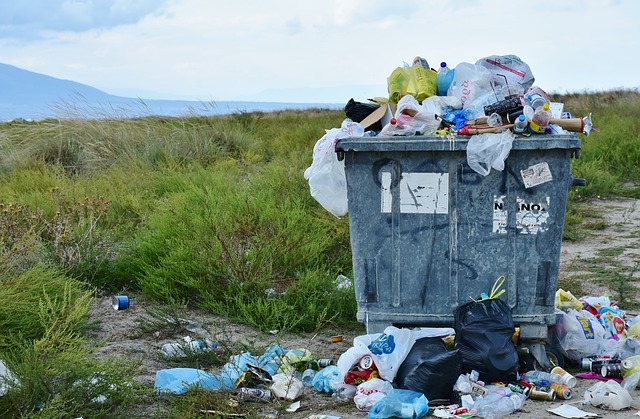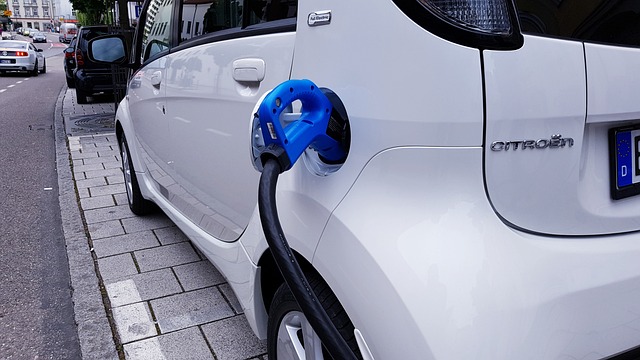It is impossible to imagine our everyday life without plastic. It is ubiquitous in our homes, cars, clothes and packaging. However, the use of plastic also has many negative impacts on our environment, health and economy. In this article, we will therefore take a closer look at the reasons why it is important to avoid plastic.
- Plastic pollution
Plastic is a long-lasting material and takes hundreds of years to decompose. Much of the plastic we produce is never recycled or reused and instead ends up in landfills or in nature. This leads to plastic pollution, which is dangerous for both animals and humans.
Marine animals mistake plastic for food and can choke on it or keep it in their stomachs, leading to slow-dying poisoning. Terrestrial animals can become entangled and injured in plastic or fall ill from ingesting plastic pieces. Plastic waste is also a problem for human health as it enters our food chain and releases harmful chemicals.
- Climate change
The production of plastic is energy intensive and results in high greenhouse gas emissions. Disposing of plastic waste also requires energy and contributes to global warming. As plastic is durable, it remains in the environment for a long time and thus contributes to worsening climate change.
- Economic impact
Plastic waste incurs high costs for disposal and cleaning up the environment. Businesses, governments and communities have to pay for the clean-up of plastic waste, which creates a financial burden for them. In addition, dependence on plastic puts a strain on the economy as the price of petroleum, from which plastic is made, can fluctuate.
Microplastics
Microplastics are another problem associated with the use of plastic. These are small plastic particles, smaller than 5 millimetres, often found in products such as cosmetics, detergents and textiles. Microplastics can also be formed from larger pieces of plastic that weather and break down in the environment.
Microplastics are a major problem for the environment because they enter the food chain and can therefore also be ingested by us humans. For example, fish can ingest microplastics, which accumulate in their bodies and eventually end up on our plates. It is not yet fully understood what effects microplastics have on our health, but there is evidence that it can lead to inflammation and other health problems.
To solve the problem of microplastics, it is important that we shop more consciously and avoid products that contain microplastics. We can also ask companies to switch to more environmentally friendly alternatives and reduce the use of microplastics. There are also technologies that can help remove microplastics from the environment, such as filters in sewage treatment plants.
It is important that we realise that microplastics are not only a problem in the oceans, but are also present in our rivers, lakes and soils. Through our daily choices and actions, we can help reduce the use of microplastics and thus protect the environment and our health.
Alternatives to plastic
There are a variety of alternatives to plastic that are more environmentally friendly and often healthier. Here are some examples:
- Glass: Glass is a durable material that can be easily recycled and therefore has a low environmental footprint. It works well for food containers, drinking glasses and other products that need to be durable.
- Metal: Metal is another durable material that is easy to recycle. It is good for food containers, drinking bottles and other products that need to be durable.
- Fabric: Fabric is a versatile material that works well for clothing, bags and other textile products. Cotton, linen, hemp and other natural fibres are more sustainable alternatives to synthetic fibres.
- Bamboo: Bamboo is a fast-growing and sustainable material that works well for products such as tableware, cutlery and drinking straws.
- Paper: Paper is an easily recyclable material that works well for packaging and other products that only need to be short-lived.
- Bio-plastics: There are a growing number of bio-plastics on the market that are made from renewable resources and are biodegradable.
- Upcycling: Upcycling refers to the transformation of waste products or unusable materials into new products of higher value. For example, new bags and other products can be made from old textiles or plastic bags.
By using eco-friendly alternatives to plastic, we can help reduce our environmental impact and thus create a more sustainable future.
How to reduce the need for plastic?
There are many steps we can take to reduce our plastic use and therefore reduce our environmental impact. Here are some suggestions:
- Use reusable bags: When shopping, use reusable bags made of fabric or other materials instead of single-use plastic bags.
- Avoid single-use plastic products: Avoid products such as disposable plastic bottles, straws, cutlery and plates and use durable alternatives made of metal, glass or other materials instead.
- Avoid packaged products: Avoid products sold in unnecessary plastic packaging. Instead, choose products that are sold loose or packaged in more sustainable packaging such as paper or cardboard.
- Buy local products: Buy local products to reduce the need for transported food and therefore packaging.
- Use reusable containers: Use reusable containers for food to reduce the need for single-use plastic packaging.
- Buy in bulk: Buy products in bulk to reduce the need for single-use plastic packaging.
- Recycle: Recycle plastic products when possible and make sure you separate the material properly for effective reuse.
- Use environmentally friendly cleaning products: Use environmentally friendly cleaning products sold in sustainable packaging to reduce the use of plastic products.
By taking these steps, we can help reduce our plastic use and therefore create a more sustainable future.
Conclusion
Avoiding plastic is an important step towards improving our environment and health. We can contribute by reducing our plastic consumption and choosing environmentally friendly alternatives. By acting together, we can help create a cleaner, healthier and more sustainable future.


